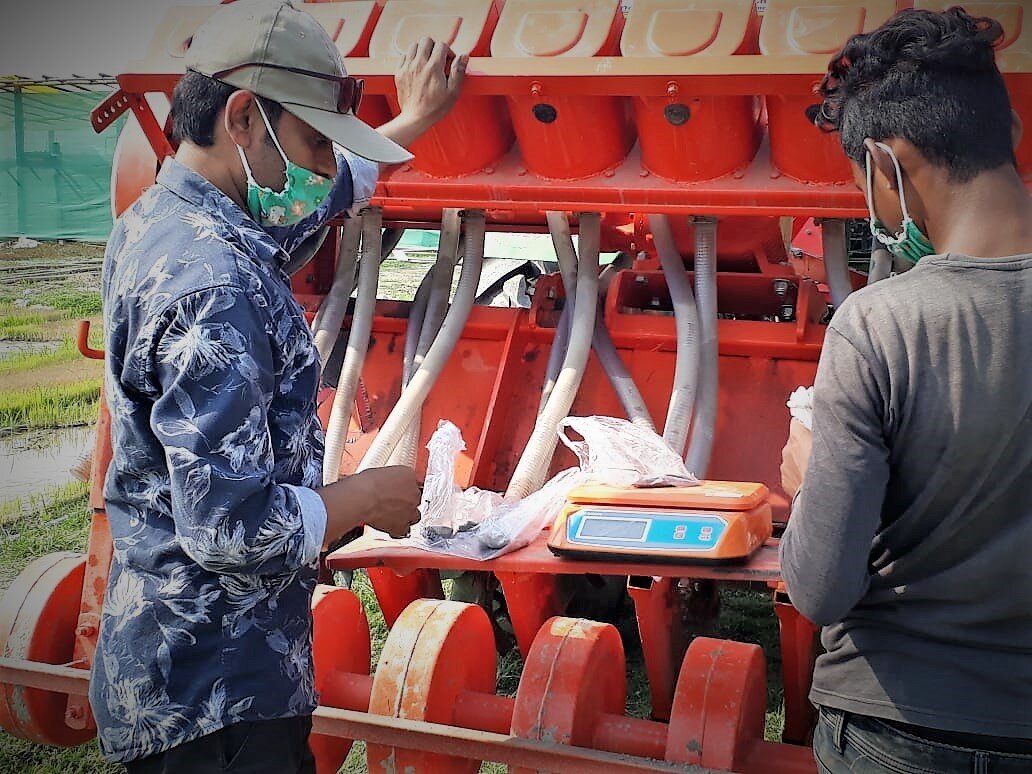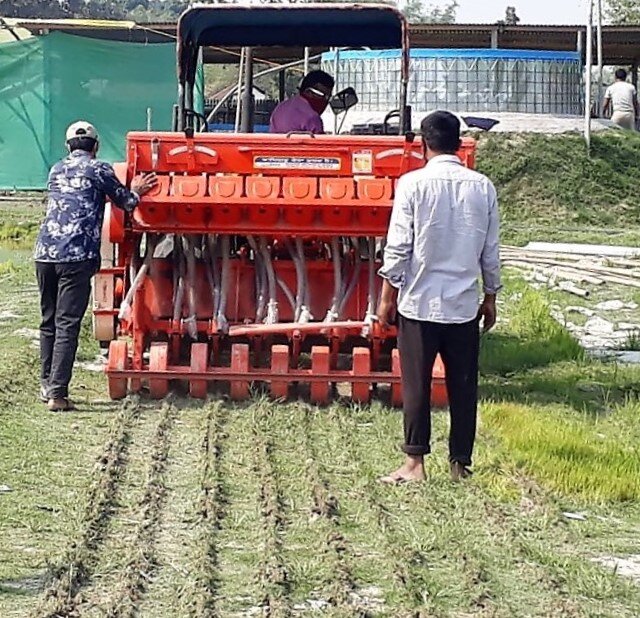Happy Seeder fosters happy jute farmers in West Bengal
The Happy Seeder has been used to plant jute for the first time in India. The Satmile Satish Club (SSCOP), one of the partners of the ACIAR funded Sustainable and Resilient Farming Systems Intensification (SRFSI) project, initiated the use of the zero tillage seed drill under CASI (Conservation Agriculture based Sustainable Intensification) technology in Jute around 2016 in West Bengal, proving that the technology was suitable. The greater challenge then was to convince the farmers to trial jute production without tillage.
There is an age-old history of jute cultivation as a cash crop, and it is the second most important vegetable fiber after cotton in India. But many farmers wondered how jute could be cultivated without tillage without resulting in major weed problems.
After four years of continuous effort and successful demonstrations in four villages in Coochbehar and Mathabhanga in West Bengal, and with the support of the Assistant Director of Agriculture, Government of West Bengal and faculties of UBKV, SSCOP have overcome this challenge. Creating history, the method of line sowing through the Happy Seeder seed drill left a lasting impact on farmers, convincing them to use this technology.
Zero till jute is particularly attractive under the current labor shortage period, when farmers desperately need labor-reducing technologies. This technology has been used this season for the first time in jute, which is also happening for the first time in India. Adopted by a good number of farmers in West Bengal, Happy Seeder technology is bringing satisfaction to the jute farmers, along with positive environmental impacts, and helping them substantially reduce the cost of cultivation.
For more information, please contact Dr Brendan Brown ([email protected]).

